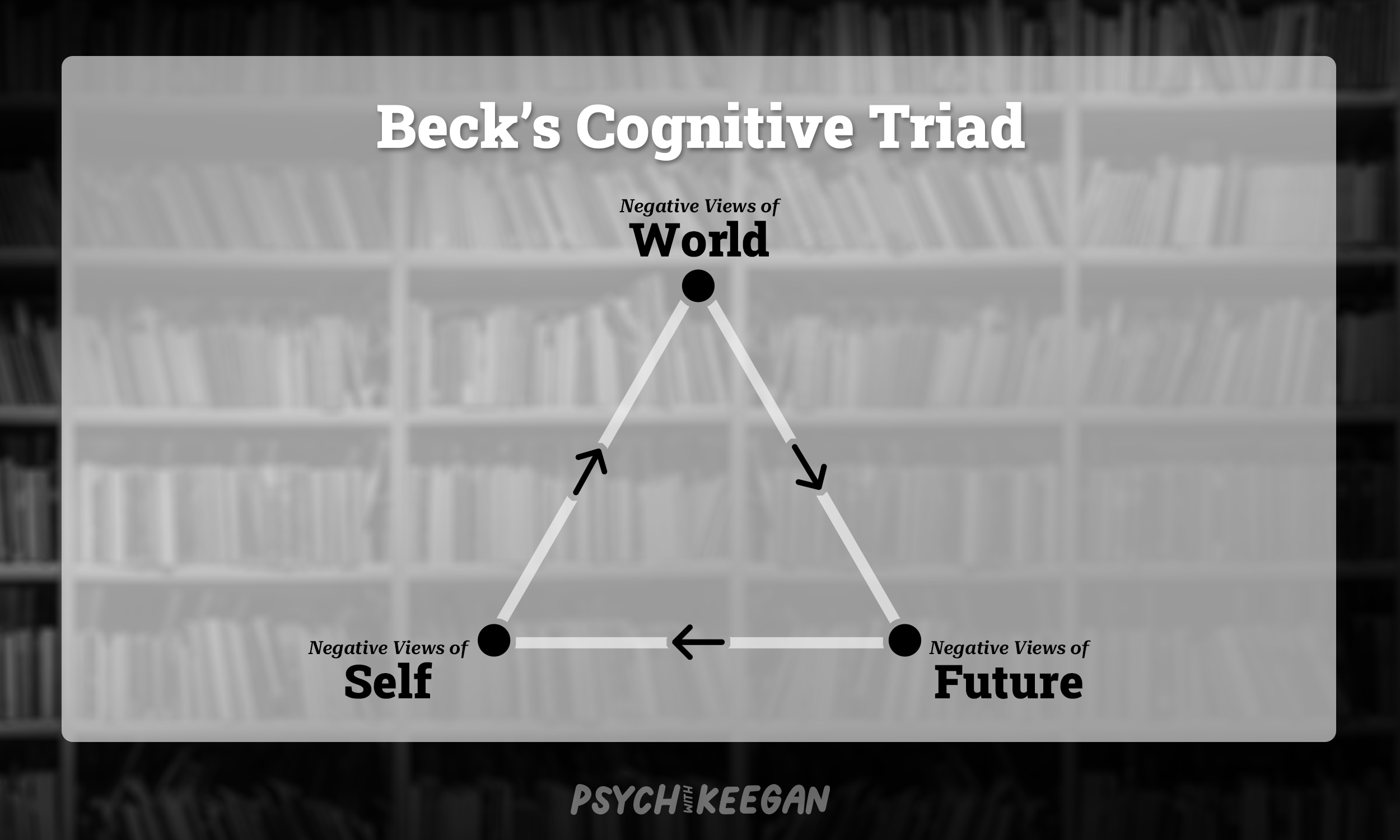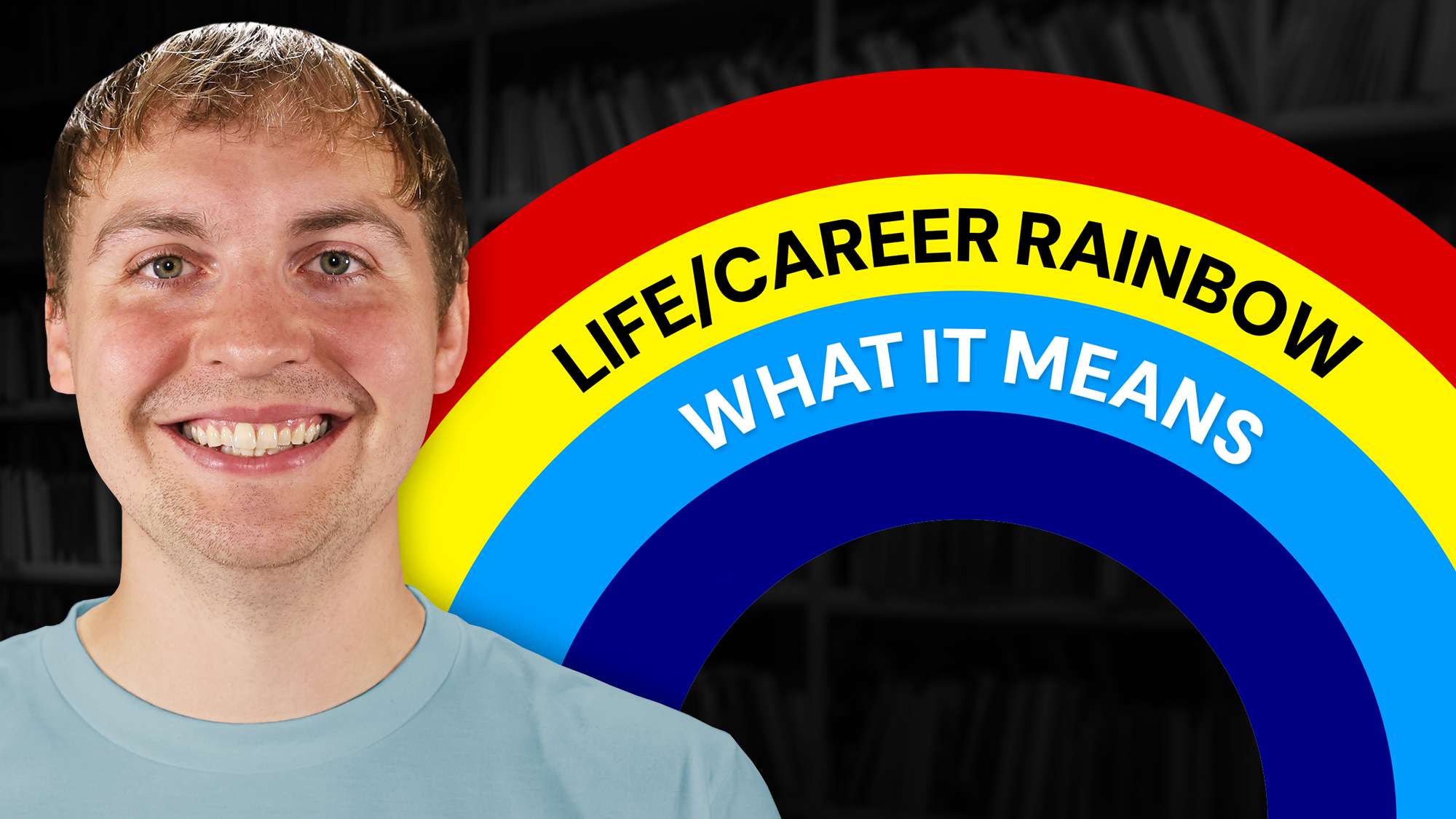
In the category of Helping Relationships on the National Counselor Examination (NCE), the Counselor Preparation Comprehensive Examination (CPCE), or another counseling exam, you’ll likely come across questions that reference Cognitive Behavioral Therapy, and may encounter questions about Aaron Beck.
This video goes over information about Aaron Beck, his early life, and how this influenced his work on Cognitive Therapy. The video also covers some of Beck’s principles for Cognitive Behavioral Therapy, and his research related to depression.
Aaron Beck was born in 1921, and would eventually become a psychiatrist. He is well-known for his work on Cognitive Therapy—or Cognitive Behavioral Therapy—and his research on depression.
Life & Influences
Beck had early experiences in life that would eventually influence his work. He was the youngest of four children, but prior to being born, two of siblings died during the influenza pandemic in 1919. After their deaths, Beck’s mother suffered severe episodes of depression. Her struggles with depression would become an influence on his work on depression.
Another influence was his own struggles with depression during different points in life. As a child, he broke his arm and had an extended recovery from this injury. During the recovery, he spent time in the hospital, causing him to miss school and eventually resulting in being held back. These experiences caused Beck to have thoughts that he was dumb and stupid. He would need to work hard to overcome these thoughts, and change his beliefs about himself.
Depression was an area of focus for Beck. As he began his work on depression, he often set out to prove the theories of Sigmund Freud. However, his results often brought him to new discoveries, and these often didn’t support Freud’s work.
One of Beck’s discoveries was that people who are depressed are often struggling with feelings of defeat, failure, and loss. As his results brought him to places other than what Freud theorized, Beck began to focus more on the cognitive aspects of depression. He found that people who struggle with depression have biased interpretations of what’s happening in life. In other words, when a person struggles with depression, Beck found that it seemed alter how they interpret life events. He felt that this was because the depression caused the person to view the world, themselves, and the future in a more negative light.
Beck had many contributions to the field, and another one of these is his Cognitive Triad. This triad illustrates how negative thoughts feed off each other and influence depression. Beck’s Cognitive Triad highlights how negative views about the world, the self, and the future create a cycle that can maintain depression.

Through his research, Beck developed his theory of depression. He said that experiences in childhood and adolescence cause a person to have negative thoughts or schemas about the world. Later on, when the person comes across situations that resemble the situations that caused the negative schemas, this can result in a depression beginning. Then, the depression is supported by additional negative schemas the person has about life.
When it comes to Cognitive Behavioral Therapy (CBT) and Beck’s work in this area, there were many things that he felt were important concepts in CBT. These include automatic thoughts, cognitive schemas, cognitive distortions, and more. Let’s discuss these each in a bit more detail.
What are Automatic Thoughts?
Automatic thoughts are spontaneous thoughts that emerge in our mind throughout our day-to-day life. They appear without any effort, and they are not thoughts that we put any choice into. Beck found that people struggling with depression and other mental health conditions often had automatic thoughts that were inaccurate in some way, often finding them to be more extreme or distorted in some way.
What are Cognitive Schemas?
Throughout life, we’re constantly taking in information. To help manage this, our mind develops schemas, which are frameworks to help process and make sense of the information that we consume. These schemas are helpful to more quickly interpret the information we take in, and provide a framework for us to view the world. However, Beck found that people with depression and other mental health conditions would more easily misinterpret information. His view was that the schemas were altered in a way that they would place focus on the information that confirmed the person’s more negative, depressed thoughts, but that their pattern of thinking wouldn’t consider the information against their view.
What are Cognitive Distortions?
When we take in information and it is processed in a way that is inaccurate, Beck said this was likely the result of a cognitive distortion. He felt that when people are frequently experiencing cognitive distortions, this would be more likely to result in depression, anxiety, or other mental health conditions. Not only that, but he felt that people who were struggling with their mental health would be more likely to have distorted ways of thinking that result in them viewing themselves more negatively.



If you or someone you know are needing immediate mental health assistance, please call or text 988, contact a local emergency telephone number, or go to the nearest emergency room.
By interacting with this website and channel, this does not constitute a therapist/client relationship. This content is intended for the purposes of entertainment and mental health education.
View additional disclaimers and notices on our Disclaimers page.